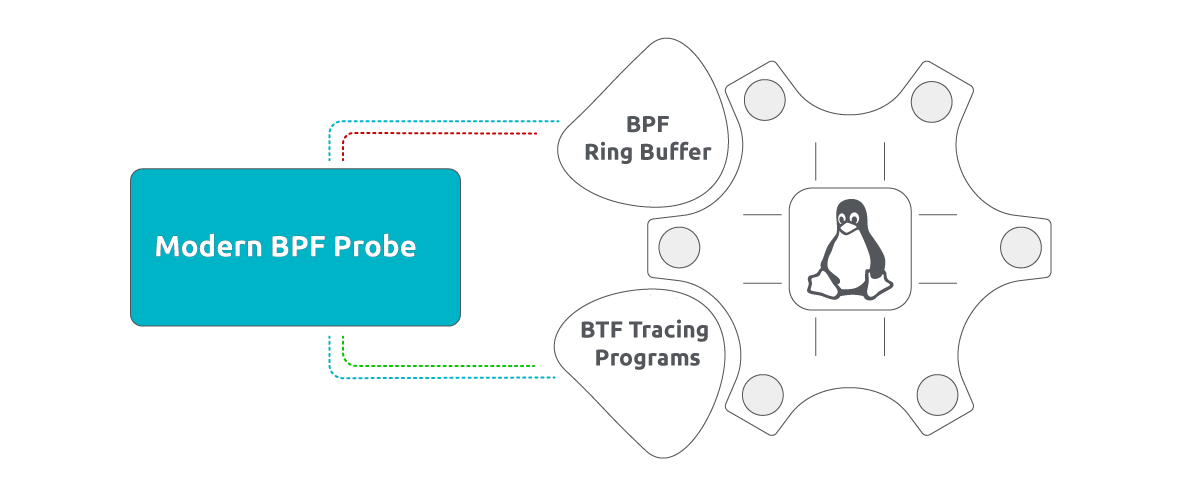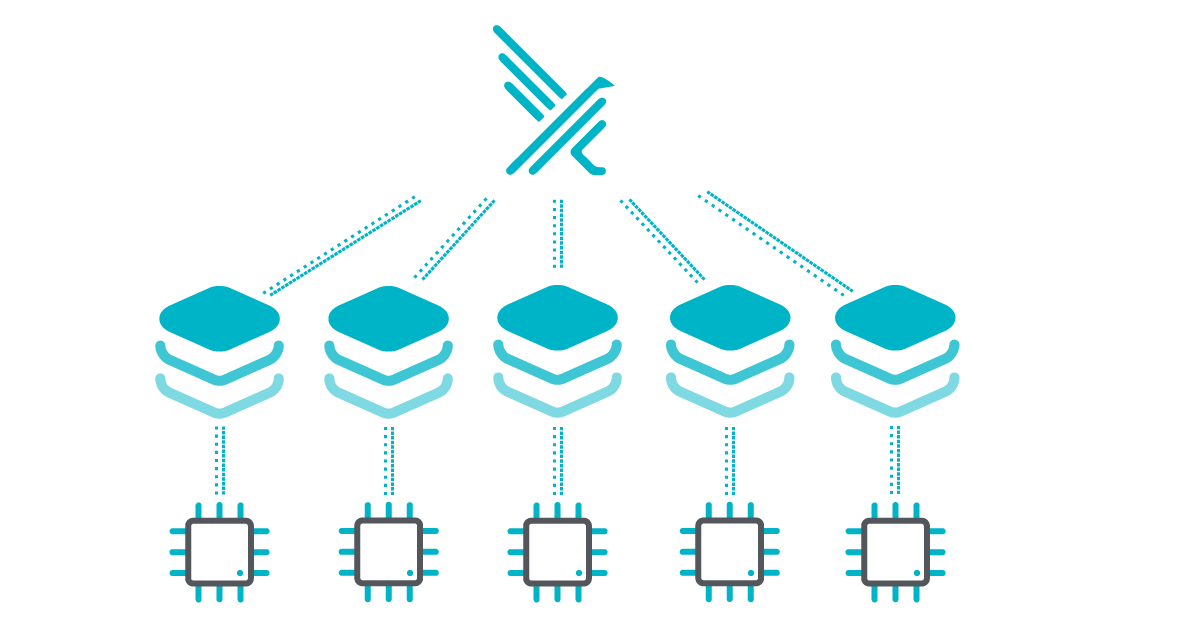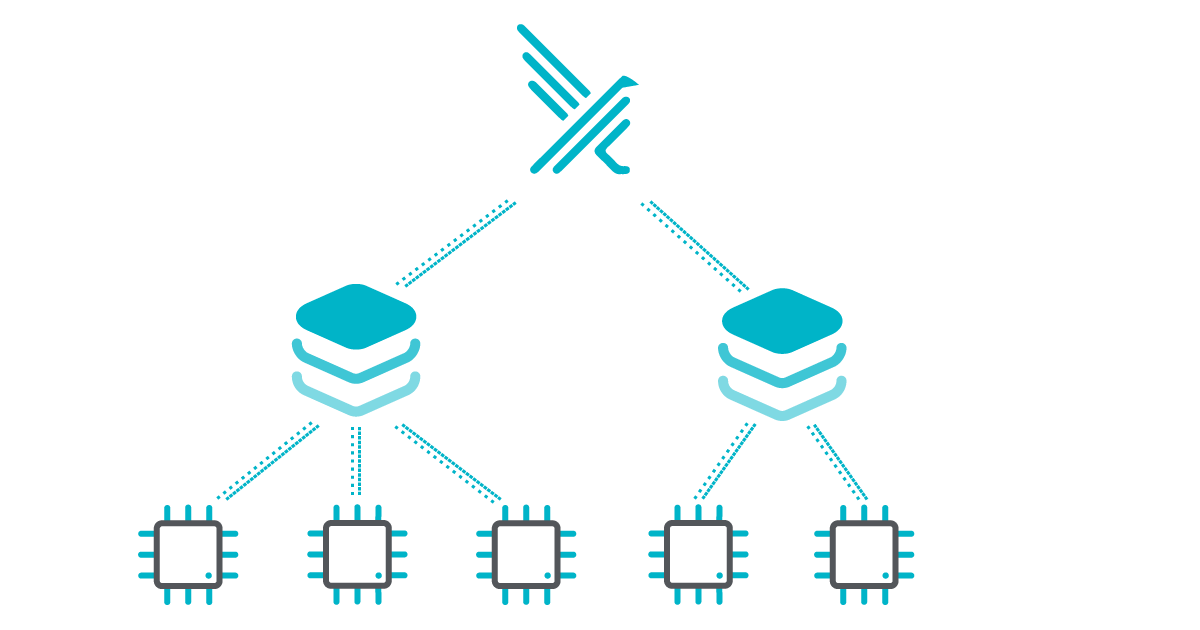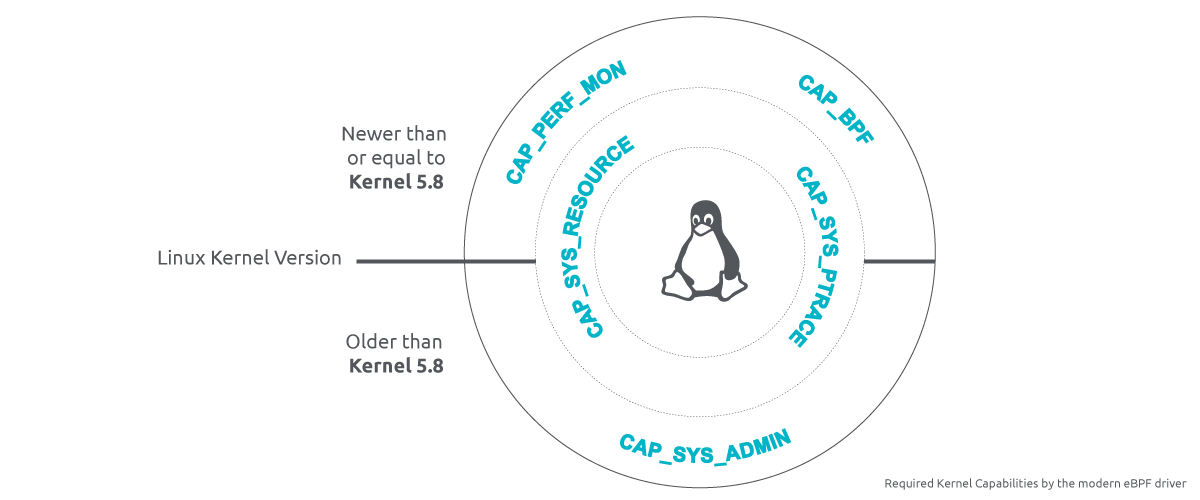
Modern eBPF probe is ready to shine
Introducing the brand-new eBPF probe: a game-changing addition to Falco's toolkit. Curious to learn more? Dive into our first blog post where we spill the beans on its exciting features, what you need to get started, and real-world use cases.
Initially a Falco 0.34.0 experimental feature, we've put in months of hard work to refine it for production use. The wait is finally over! Falco 0.35.0 now ships with the modern probe as an official driver, alongside the trusted Kernel module and current eBPF probe. Falco is now more prepared than ever to scale with your infrastructure.
Supported Syscalls
In our driver history, we've supported syscalls in two possible ways:
- Fully instrumented 🟢
- Generically instrumented 🟡
Fully instrumented means that Falco notifies when a syscall is invoked in the system and enables the user to examine its parameters. You can find the list of available parameters for each syscall on https://falco.org/docs/reference/rules/supported-events/.
Generically instrumented means that Falco notifies when a syscall is invoked in the system, but nothing more.
Excitingly, in the latest Falco 0.35.0 version, the modern probe extends its support to reach syscall parity with the other drivers. This report outlines the current instrumentation state.
Advanced support checks
Before Falco 0.35.0, the modern probe was restricted to running exclusively on machines with kernel versions >= 5.8. This limitation posed challenges for certain users, prompting us to implement a more intelligent support detection mechanism. Leveraging the capabilities of the libbpf library, we can now search for specific features within the target system, precisely addressing our needs.
To elaborate further, we currently search for two crucial features that are essential for running the modern probe:
- BPF Ring Buffer
- BTF Tracing Programs

For a more in-depth understanding of these two concepts, we invite you to explore the previous blog discussing the modern eBPF driver.
Now, let's delve into the potential errors that you may encounter if any of these features are missing.
If the BPF ring buffer is not available, Falco will present you with an error message similar to:
ring buffer map type is not supportedIf BTF tracing programs are absent, the error message you can expect to encounter would be along the lines of:
tracing program type is not supported
Buffers allocation
Every Falco driver utilizes shared buffers to facilitate the transmission of security events between the kernel and the userspace. To be more specific, there is an individual buffer allocated for each online CPU, ensuring efficient handling of events.

We have always followed this particular approach for utilizing shared buffers, and recently we introduced a new feature that allows you to modify the size of these buffers using a custom Falco configuration option called syscall_buf_size_preset. By default, each buffer is set to 8 MB, but you have the flexibility to adjust it anywhere between 1 MB and 512 MB.
Increasing the buffer size can be beneficial when you encounter syscall drops. A larger buffer size can help mitigate syscall drops in systems with high production loads. However, it's important to note that very large buffers may also impact the overall system performance, potentially slowing down the machine.
Conversely, reducing the buffer size can help enhance system speed, but it may also result in an increased number of syscall drops. It's crucial to exercise caution when experimenting with this configuration option, taking into consideration the trade-off between performance and syscall drops ⚠️
While the ability to adjust buffer sizes is a cool feature, it is available to all drivers. So, what sets the modern probe apart? Well, with this new driver, you have the added capability to manipulate the number of buffers. This means that the traditional rule of having one buffer per CPU is no longer a strict requirement. Unlike the old drivers, where the only possible configuration was one buffer per CPU, the modern probe introduces flexibility in this aspect, opening up new possibilities and alternative scenarios.
As an illustration, one such scenario is the allocation of a ring buffer for every 3 CPUs.

Observe that the second buffer can still be used by another CPU.
To adjust the number of buffers, you can use the Falco configuration option called modern_bpf.cpus_for_each_syscall_buffer. Unlike other drivers that have a 1:1 mapping between buffers and CPUs, the modern probe has a default value of one buffer for every two CPUs. This distinction arises because the BPF ring buffer requires more memory compared to other drivers, necessitating a reduction in the number of buffers.
However, feel free to experiment and find the configuration that best suits your system. Just remember the following guideline: having more buffers can reduce the likelihood of drops but will increase the overall memory footprint. On the other hand, reducing the number of buffers can help decrease memory consumption but may lead to an increased risk of drops.
Least privileged mode
Similar to the current probe, the modern probe can operate in least privileged mode. However, to ensure proper functionality, Falco always mandates a minimum of two capabilities: CAP_SYS_RESOURCE and CAP_SYS_PTRACE. Additional required capabilities vary depending on your specific kernel version, like the CAP_SYS_ADMIN capability for older kernels, which can be replaced by the CAP_PERFMON and CAP_BPF ones when running on a kernel newer than 5.8.

Here's an example command to run Falco in least privileged mode using the modern probe:
docker run --rm -i -t \
--cap-drop all \
--cap-add sys_admin \
--cap-add sys_resource \
--cap-add sys_ptrace \
-v /var/run/docker.sock:/host/var/run/docker.sock \
-v /proc:/host/proc:ro \
falcosecurity/falco-no-driver:latest falco --modern-bpf
Observe we cannot use CAP_BPF and CAP_PERFMON here since docker doesn't support them yet.
Try it out
The modern eBPF probe is compatible with all the installation methods available for other drivers.
Also, you can test it live in this interactive environment that we have prepared for you.
Click on it to start playing with it 🎮

